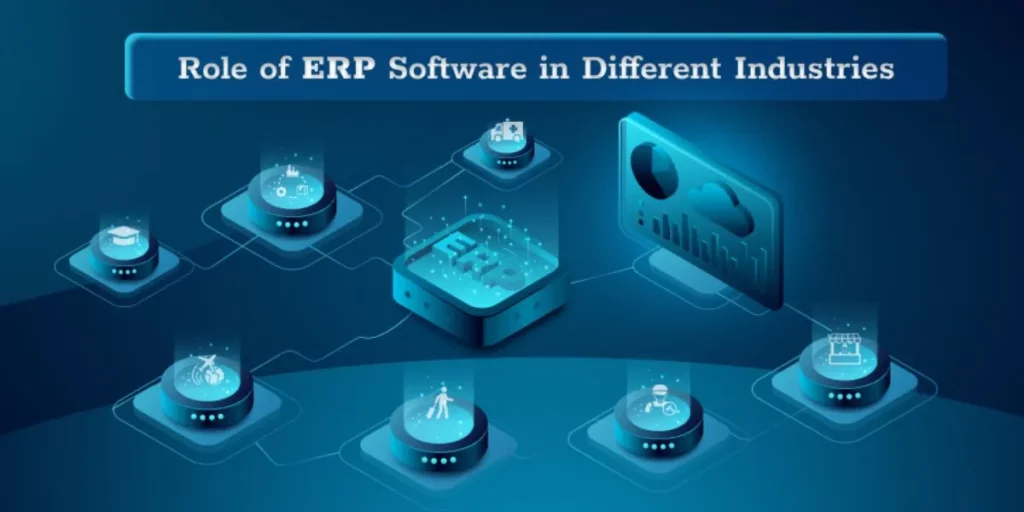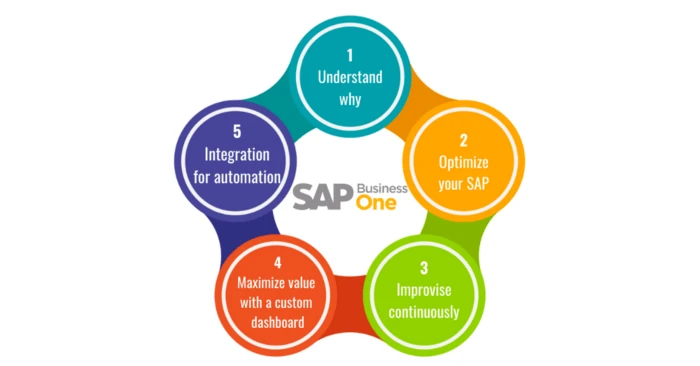In today’s rapidly evolving business landscape, financial management and reporting have become increasingly complex tasks. Organizations are constantly seeking ways to enhance their financial processes, improve accuracy, and gain real-time insights into their financial health. This is where Enterprise Resource Planning (ERP) systems come into play, offering a transformative solution to streamline financial management and reporting. In this blog post, we will explore the significant role that ERP plays in this crucial aspect of business operations.
1. Centralized Financial Data
One of the fundamental contributions of ERP systems to financial management is centralizing financial data. Traditional financial processes often involve multiple disconnected systems and spreadsheets, leading to data fragmentation and inconsistency. ERP software consolidates financial data from various departments into a single, unified platform. This centralization eliminates data silos, reducing errors and providing a holistic view of financial information.
2. Enhanced Financial Visibility
ERP systems empower organizations with real-time visibility into their financial performance. With up-to-the-minute data available at your fingertips, financial managers can make informed decisions quickly. This visibility extends beyond basic financial statements to include detailed insights into cash flow, budget variance, and financial forecasts. The ability to access accurate and timely information is crucial for steering the organization in the right direction.
3. Automation of Financial Processes
ERP systems automate a wide range of financial processes, from accounts payable and receivable to payroll and expense management. Automation reduces manual data entry, minimizes errors, and accelerates transaction processing. For example, automated invoice processing can help organizations pay vendors on time while taking advantage of early payment discounts, improving cash flow management.
4. Improved Compliance and Reporting
Financial regulations and reporting requirements continue to grow in complexity. ERP systems offer robust compliance and reporting tools that help organizations stay on top of these requirements. Automated report generation ensures that financial statements and regulatory filings are accurate and submitted in a timely manner. Additionally, ERP systems can provide audit trails and historical data, facilitating compliance audits and reducing the risk of financial penalties.
5. Streamlined Budgeting and Forecasting
Effective budgeting and forecasting are essential for financial planning and decision-making. ERP Software provide advanced tools for creating, tracking, and analysing budgets. These systems enable organizations to develop accurate financial forecasts based on historical data and real-time performance metrics. By aligning budgeting and forecasting with actual financial data, organizations can adapt to changing market conditions and make data-driven decisions.
6. Cost Control and Reduction
Controlling and reducing costs are paramount for financial success. ERP systems help identify areas where cost savings can be achieved. By monitoring expenses, analysing procurement data, and optimizing inventory management, organizations can minimize unnecessary expenditures and maximize profitability. Additionally, ERP systems provide insights into the cost-effectiveness of various processes, enabling continuous improvement efforts.
7. Enhanced Financial Collaboration
ERP systems promote collaboration among finance teams and other departments. With shared access to financial data and reporting tools, different teams can work together to analyze financial information, identify trends, and make informed decisions. This collaboration fosters a more cohesive and coordinated approach to financial management.
Conclusion
In today’s business landscape, effective financial management and reporting are critical for success and growth. ERP systems have emerged as indispensable tools in this regard, offering centralized data, real-time visibility, automation, compliance support, and advanced budgeting capabilities. By harnessing the power of ERP, organizations can streamline their financial processes, reduce errors, enhance decision-making, and ultimately achieve greater financial stability and competitiveness. As financial management continues to evolve, ERP systems will remain essential for organizations striving to maintain a strong financial footing in an ever-changing world.



